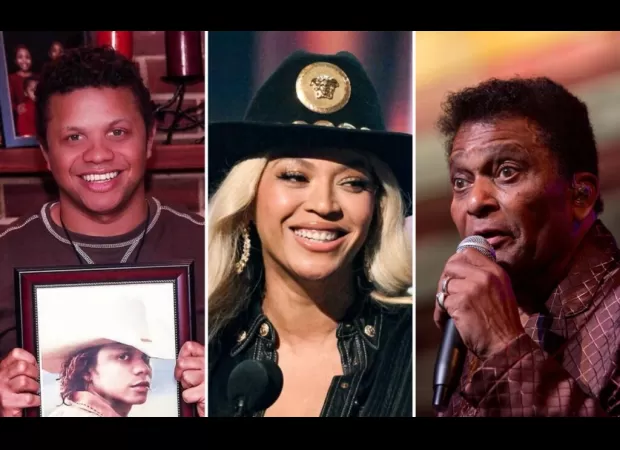In the crossroads of Black culture and country music lies a rich history.
Country music has strong ties to African American culture, despite its common association with rural America and the heartland.

Country music is often associated with rural America and the heartland, but its roots run much deeper. In fact, it has strong ties to African American culture, with origins in musical traditions like blues, gospel, and folk music. While many may think of country music as a genre dominated by white artists, it's important to recognize the significant role that black musicians have played in shaping its sound and style.
One of the most notable contributions from the black community is the influence of the banjo, an instrument with West African origins. Artists like Darius Rucker and the late Charley Pride have defied stereotypes and gained widespread acclaim in the industry. However, it's worth noting that the country music industry has a tendency to only highlight one or two black artists at a time. This is a trend that needs to change.
There are countless other talented black musicians who could bring new life and inclusivity to the genre, yet they often go unrecognized. And then there are those one-time "flukes," like Lil Nas X, who achieved mega success thanks to a collaboration with Billy Ray Cyrus. While these instances may bring a brief moment of diversity to the country music scene, it's important to recognize and support black artists consistently, not just as a fleeting trend.
In recent years, there has been a renewed interest in black artists within the country music scene. One of the most influential figures in this movement is Beyoncé. Not only is she a talented and business-minded artist, but she also happens to be a black woman. Her foray into country music with her album "Texas Hold 'Em" was a stroke of genius, showcasing her versatility as an artist and bringing a fresh perspective to the genre. And her collaboration with the Dixie Chicks on the track "Daddy Lessons" blurred the lines between country and pop, challenging traditional notions of genre boundaries and encouraging fans to embrace a more diverse range of musical influences.
Beyoncé's success in the country music scene has opened doors for other black artists to explore and excel in the genre. However, there are still many barriers that black artists face within the industry. For example, artists like Dean Crawford, who have dedicated their lives to country music, often go unrecognized and unappreciated. It's time for the industry to recognize and support these talented individuals who represent the true heart and soul of country music.
It's important to acknowledge the historical context in which country music emerged and how it intersects with the experiences of black Americans. The terms "cowboy" and "cattleman" have deep roots in the African American community, yet they have been appropriated by white men and used to describe black individuals in derogatory ways. This is just one example of the systemic racism that has plagued the country music industry and hindered the success of black artists.
But despite these challenges, black artists continue to make a significant impact on the country music industry. Their music resonates with audiences around the globe, transcending language and cultural barriers. And their contributions are not just cultural, but also economic. Black artists bring in significant revenue through album sales, concert tickets, and merchandise, contributing to the overall success of the industry.
As we look to the future of country music, it's vital that we celebrate and support the contributions of black artists. Their stories, experiences, and perspectives enrich the genre and ensure its continued relevance in a rapidly changing world. By fostering inclusivity and embracing diversity, we can ensure that country music remains a vibrant and inclusive art form for generations to come. So let's give a big salute to all the black country music artists out there, and to all the fans who embrace them and their music.






